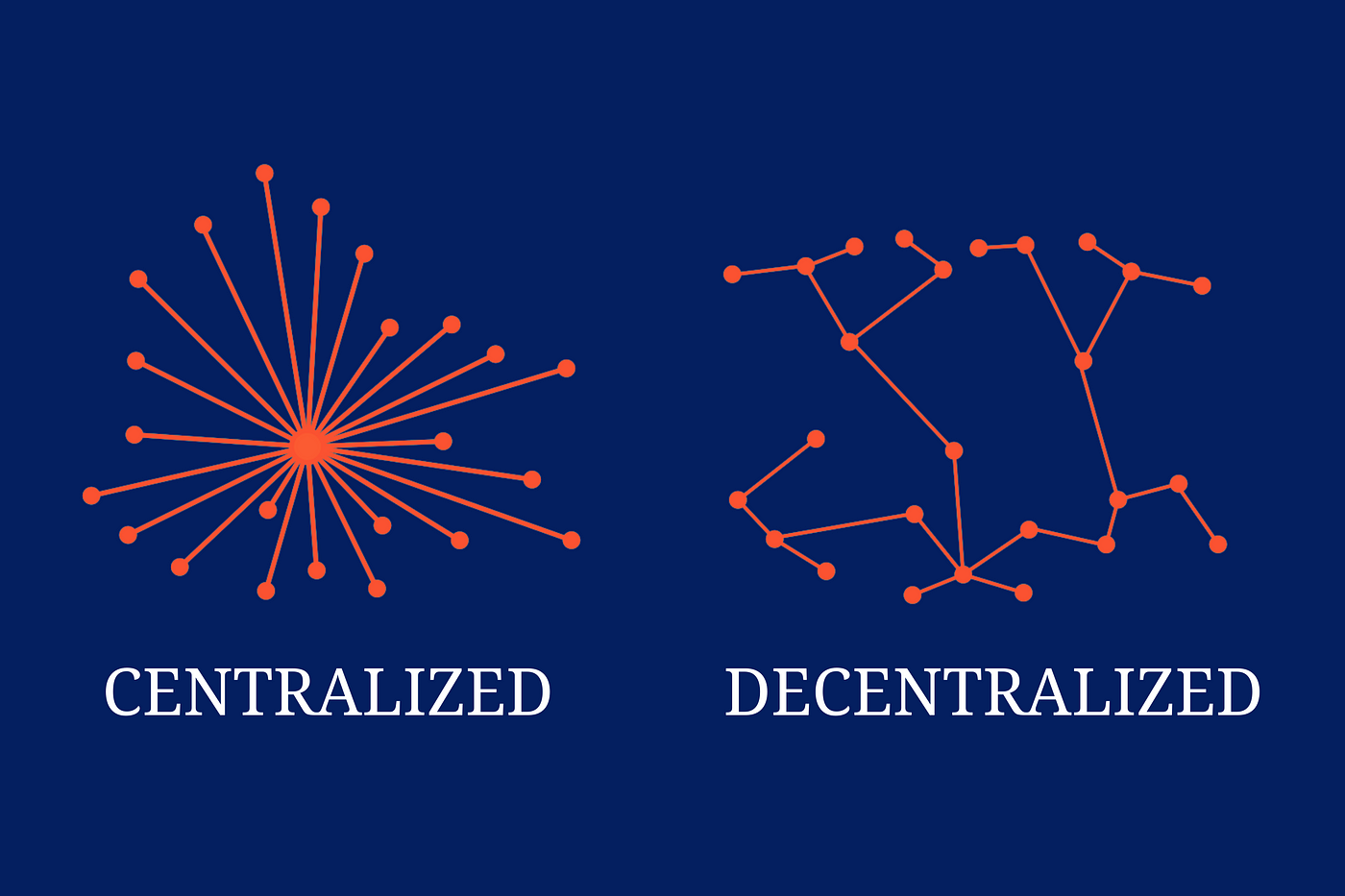DePIN Networks Facilitating Secure Peer-to-Peer Transactions. The secure peer-to-peer (P2P) transactions are indispensable in the digital world we live today. It is a common issue that centralized ecosystems may lack the required security and resources needed in the more decentralized networks. Enter DePIN Networks. How DePIN (Decentralized Physical Infrastructure Network) Redefines P2P Transaction Security This blog post about DePIN Networks Facilitating Secure Peer-to-Peer Transactions, the use of secure peer-to-peer transactions, explaining its advantages in practical examples and future prospects.
DePIN: DEFINITION & EXPLANATION
For the first time, DePIN Networks (Decentralized Physical Infrastructure Networks) offers an innovative approach to the way digital transactions and data security is viewed. Being a decentralized network, DePIN differs from traditional centralized networks and with the use of additional infrastructure to secure transactions on its platform making them more efficient while ensuring privacy. It can operate in the form of a DePIN Network where data is not stored in one single central place, rather several nodes. This decentralization makes it so no single point of failure can compromise the entire network, which adds a metric shit ton of security.
DePIN Networks main components
Several components work together in DePIN Networks to enable secure and effective transactions:
Nodes: Node simply is an individual device or server that helps the a network in performing its functioning. Every node stores some part of the data and helps in addition to the efficiency of a network.
Consensus Mechanism: These are protocols that aid in verifying and validating transactions within the network. Proof of Work (PoW) and Proof of Stake.
Smart Contracts: Smart contracts are self-executing contracts with the terms of agreement between buyer and seller being directly written into lines of code. They use smart contracts, and these agreements are added into the blockchain once certain conditions on both sides have been completed.
Key Difference between DePIN Networks and Centralized Network
As DePIN Networks Facilitating Secure Peer-to-Peer Transactions , Non-route networks depending on central web servers risk vulnerable points of access that could be utilized to attack the system and used as a single point of failure. Positive aspects of DePIN Networks, aside from having data distributed across numerous nodes [15], include increased security and diminished downtime. Decentralization also ensures that the network is robust, even if some of the nodes fail or are compromised.
The Need for Secure Peer-to-Peer Transactions
Overview of Peer-to-Peer (P2P) Transactions
Peer-to-peer transactions involve direct exchanges between two parties without intermediaries. This model offers numerous advantages, such as reduced transaction fees and faster processing times. However, it also introduces new security challenges, as there is no central authority to oversee and verify transactions.
Common Security Issues in P2P Transactions
P2P transactions are vulnerable to several security issues, including:
- Fraud: Without proper verification, fraudulent transactions can occur.
- Hacking: Centralized platforms can be hacked, compromising user data.
- Privacy Concerns: Traditional networks often lack robust privacy protections, exposing users to data breaches.
Why Secure P2P Transactions are Crucial in the Digital Age
As digital transactions become increasingly common, ensuring their security is paramount. Secure P2P transactions protect users’ financial data, build trust in digital platforms, and promote the broader adoption of digital payment systems. DePIN Networks play a vital role in addressing these security concerns, offering a decentralized approach that enhances protection and privacy.
Join the future of secure peer-to-peer transactions by investing in SRP Token—enhance your privacy and efficiency today!
How DePIN Networks Enhance Security
Encryption and Data Protection
One of the primary ways DePIN Networks enhance security is through encryption. All data transmitted and stored within the network is encrypted, making it extremely difficult for unauthorized parties to access or tamper with it. This ensures that sensitive information remains secure, even if some nodes are compromised.
Decentralization and Its Impact on Security
Decentralization is at the core of DePIN Networks’ security model. By distributing data across multiple nodes, DePIN Networks eliminate the single point of failure that plagues traditional centralized systems. This not only enhances security but also improves the network’s resilience to attacks and failures.
Real-Time Monitoring and Anomaly Detection
DePIN Networks incorporate real-time monitoring and anomaly detection systems to identify and respond to potential security threats promptly. These systems continuously analyze network activity, flagging any unusual patterns that may indicate a security breach. This proactive approach ensures that threats are detected and mitigated before they can cause significant harm.
Benefits of Using DePIN Networks for P2P Transactions
Enhanced Privacy and Data Control
One of the standout benefits of DePIN Networks is the enhanced privacy and data control they offer. Unlike traditional networks, where user data is often stored and managed by third parties, DePIN Networks allow users to retain control over their data. This means that users can choose who has access to their information and under what conditions, significantly enhancing privacy.
Reduced Risk of Fraud and Hacking
DePIN Networks’ decentralized nature makes them inherently more secure against fraud and hacking. Since there is no central repository of data, hackers have no single target to attack. Additionally, the use of encryption and consensus mechanisms ensures that transactions are verified and secure, reducing the risk of fraud.
Improved Transaction Speed and Efficiency
By eliminating intermediaries, DePIN Networks streamline the transaction process, resulting in faster and more efficient transactions. This is particularly beneficial in P2P transactions, where speed and efficiency are often critical. Users can complete transactions in real-time, without the delays associated with traditional payment systems.
Lower Transaction Costs
DePIN Networks also help reduce transaction costs. Traditional payment systems often involve multiple intermediaries, each of which charges a fee. By removing these intermediaries, DePIN Networks can significantly lower the cost of transactions, making them more affordable for users.
Real-World Applications of DePIN Networks
Financial Services and Banking
In the financial sector, DePIN Networks can revolutionize how transactions are conducted. Banks and financial institutions can leverage DePIN to offer faster, more secure, and more cost-effective services. For example, cross-border payments can be processed in real-time, with lower fees and enhanced security.
Supply Chain and Logistics
Supply chain and logistics companies can use DePIN Networks to track and verify transactions throughout the supply chain. This can enhance transparency and accountability, reducing the risk of fraud and ensuring that products are authentic and of high quality. The decentralized nature of DePIN Networks also ensures that data is secure and resistant to tampering.
Case Studies
Example 1: Successful Implementation in the Financial Sector
A leading bank implemented DePIN Networks to facilitate cross-border transactions. By leveraging the decentralized infrastructure, the bank was able to reduce transaction times from days to minutes, significantly lowering costs. Additionally, the enhanced security features of DePIN Networks helped the bank prevent fraud and protect customer data.
Challenges and Considerations
Technical Challenges in Implementing DePIN Networks
Implementing DePIN Networks can pose several technical challenges. These include ensuring compatibility with existing systems, managing the complexity of decentralized infrastructure, and addressing potential scalability issues. However, with careful planning and the right expertise, these challenges can be overcome.
Regulatory and Compliance Issues
DePIN Networks must comply with various regulatory requirements, particularly in sectors such as finance. Ensuring compliance with data protection laws and industry standards is critical to gaining user trust and avoiding legal issues.
User Adoption and Education
For DePIN Networks to succeed, users must understand and trust the technology. This requires comprehensive education and awareness campaigns to inform users about the benefits and security features of DePIN Networks. Additionally, user-friendly interfaces and seamless integration with existing systems can facilitate adoption.
The Future of DePIN Networks in P2P Transactions
Emerging Trends and Innovations
The future of DePIN Networks is bright, with ongoing innovations and emerging trends set to enhance their capabilities further. Developments in blockchain technology, advanced encryption methods, and artificial intelligence are likely to play a significant role in the evolution of DePIN Networks.
Potential Impact on Various Industries
DePIN Networks have the potential to transform a wide range of industries. The decentralized, secure, and efficient nature of DePIN Networks can drive significant improvements in how transactions and data management are handled.
Long-Term Vision and Goals
The long-term vision for DePIN Networks is to create a more secure, efficient, and decentralized digital landscape. By facilitating secure P2P transactions, DePIN Networks aim to build trust in digital platforms, promote broader adoption of digital payment systems, and ultimately create a more inclusive and equitable digital economy.
Conclusion
DePIN Networks are revolutionizing the way we conduct peer-to-peer transactions. By leveraging decentralized infrastructure, advanced encryption, and real-time monitoring, DePIN Networks offer a secure, efficient, and cost-effective solution for P2P transactions. As we look to the future, the potential applications and benefits of DePIN Networks are vast, promising to transform industries and enhance digital security. By understanding and embracing this technology, we can build a more secure and efficient digital world.

 China
China Russia
Russia India
India









